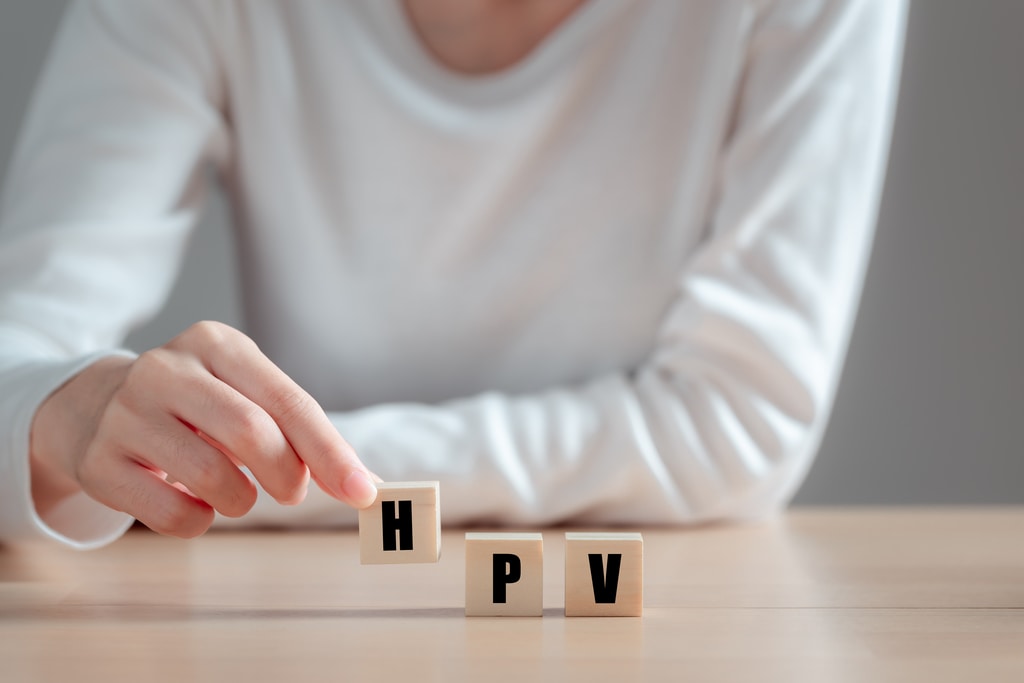How Do You Know If You Have HPV?
In many cases, you don’t.
This is because, if you have a healthy immune system, your body may rid itself of the virus before you show any symptoms.
HPV has been known to cause cervical cancer, as well as other types of cancer. This is why it’s very important to be screened and have regular Pap smears.
We’ll take a closer look at HPV, how it spreads, and what to look for when it does show symptoms.
What Are the Warning Signs of HPV?
As we mentioned earlier, if you have a healthy immune system and no underlying serious health issues, your body will naturally eliminate an HPV infection, usually within two years—meaning you may never show any active symptoms.
Because of this, it may not be obvious that you have HPV. In fact, many of those infected don’t even know they have it. This means they can spread it to others and not even be aware.
However, if your body is unable to get rid of HPV, the first sign of an infection is usually warts. Their appearance and location depend upon which strain of HPV is present. The different types of warts may include:
Genital Warts
For women, these are most commonly seen on the vulva. However they may also be on the cervix, in the vagina, or even near the anus. Men may have warts on the scrotum or penis.
While these warts are typically not painful, they can cause itching and tenderness.
Common Warts
Certain strains of HPV can manifest as common warts, raised bumps that are frequently found on the hands or fingers.
Plantar Warts
These are typically found on the balls of your feet or on your heels.
Flat Warts
These are slightly raised lesions that can appear:
- On the face in children
- In the beard area in men
- On the legs in women
Certain Strains of High-Risk HPV May Show No Symptoms
High-risk HPV means that this particular strain places you at greater risk for a number of cancers.
This is why it is so important to be regularly tested for STDs and have regular Pap smears. If HPV is not treated, it can lead to cancers of the:
- Vagina
- Cervix
- Vulva
- Anus
The only way to determine if you have a high-risk strain of HPV is to have it tested.
How Does HPV Spread?
HPV spreads by having close, skin-to-skin contact with someone who has the virus. This most commonly occurs after having vaginal or anal sex.
Can You Get Rid of HPV?
While your immune system may get rid of the virus after a certain amount of time, there are no treatments for HPV itself, rather, treatment focuses on the health issues that occur as a result of HPV.
For example:
- Genital warts can be treated with prescription medication.
- If you have precancerous cervical cells, these can be removed through something called a LEEP procedure.
Associates in Women’s Healthcare Offers HPV Vaccinations and Cervical Cancer Screenings
One of the best ways to protect yourself against HPV is to get vaccinated. If you are past the vaccination age, you can still help protect yourself by utilizing safe sex techniques.
Because HPV is very prevalent, we encourage our patients to have regular Pap smears so cervical cancer can be detected at its earliest and most treatable stage.
We are always here to help you, if you have HPV or another type of STD. Do not be embarrassed to talk to us: Your health is simply too important.
For decades, we’ve been women caring for women throughout the Raleigh and Triangle area. If you are having complications you believe are from HPV, or if you would like to be tested, please contact us for an appointment today





